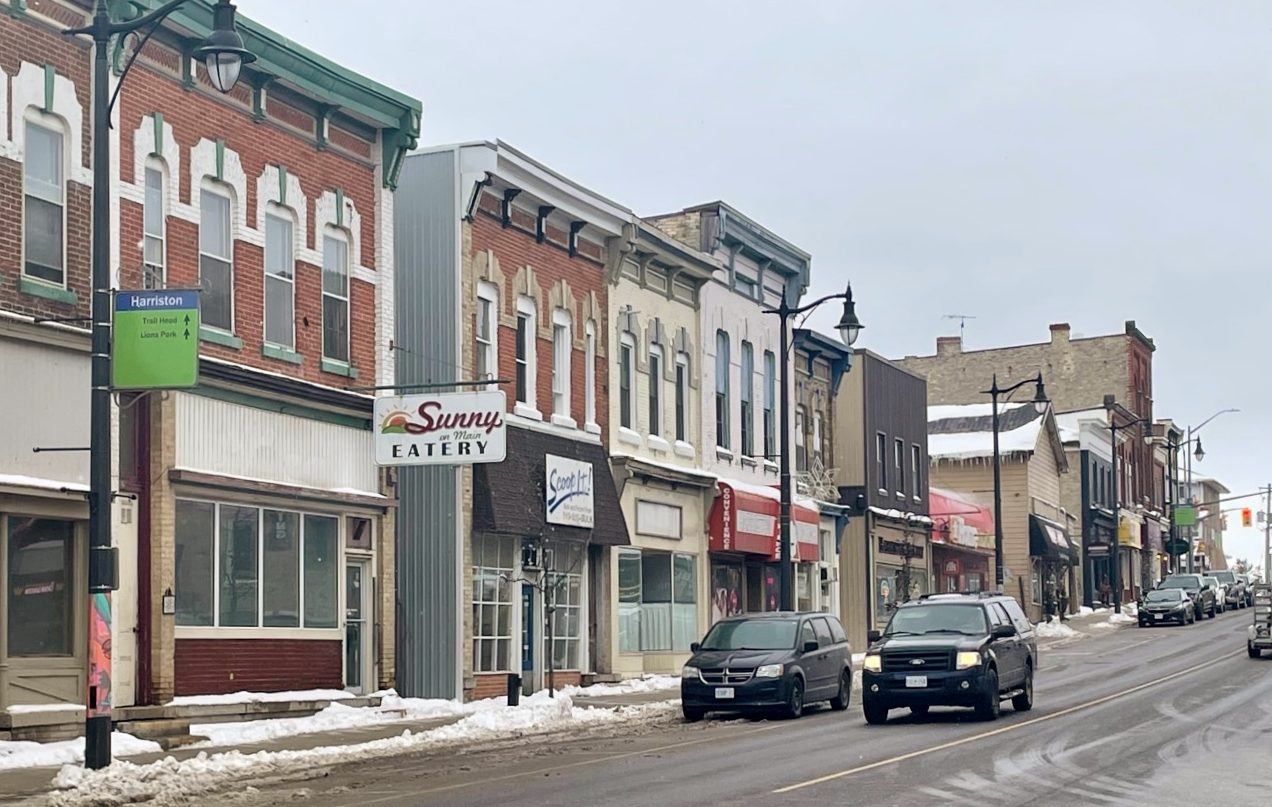MINTO – A zoning bylaw amendment prohibiting new ground floor residential units and hotels in downtown core areas has been approved by council here.
The housekeeping amendment to the Town of Minto’s zoning bylaw was approved at the Dec. 6 meeting.
A report from Minto building and planning staff indicates discussions on the changes originated with the town’s economic development and planning committee (EDPC) around protecting commercial square footage in the Central Commercial (C1) zones, which are primarily located in the downtown cores of Clifford, Harriston and Palmerston.
EDPC’s recommended town staff explore the option of removing accessory residential units as a permitted use on the ground floor of downtown commercial buildings. The town’s existing zoning bylaw permits 49 per cent of the rear portion of the ground floor of commercial buildings in the C1 zone to be used for accessory residential. However the committee expressed concerns about this rendering commercial spaces too small for businesses to operate out of, the report explains.
During a public meeting on the proposed amendment, Wellington County senior planner Matthieu Daoust told council the change regarding hotels aligns with the vision of the county’s official plan.
“For the most part C1 zones are located within the central business district designation, which seeks to serve the needs of pedestrian-oriented traffic as opposed to the traveling public,” Daoust explained.
“With the C1 zone being in the heart of urban centres, the subject lands are typically smaller in size, which does pose zoning issues, specifically around parking,” said Daoust, adding hotels will remain a permitted use within the highway commercial C2 zones.
Minto planning coordinator Ashley Sawyer pointed out ground floor residential units in commercial buildings downtown created the concern the remaining commercial space was often too small to be viable for business use.
“We had to find a delicate balance between protecting these commercial uses in our downtown core for the long term, while also ensuring that we do not hinder residential development in a time when housing supply is lacking,” Sawyer explained.
“After internal discussions, we did agree with the economic development committee that removing residential uses on the ground floor but remaining permitted above was the best option to move forward to protect our downtown cores,” said Sawyer, who added no changes are proposed within the other commercial zones regarding accessory residential units.
“In terms of the hotel change, that is something that Wellington North has recently adopted. Our bylaws are nearly identical and it’s always good to maintain consistency with your neighbor,” she added.
Councillor Ron Elliott said commercial enterprises looking to move into the community were finding, “there was no space for them. And the space that was available was too small.
“It was easier for the landlord to … make that another apartment and therefore the front part of it was never enough to make it real commercial,” Elliott added.
Deputy mayor Jean Anderson asked if existing ground floor residential units downtown would be allowed to remain.
“Do they get grandfathered in, or how does that play?” she wondered..
Sawyer said existing units would become legal nonconforming uses.
“So, we won’t be asking them to leave or anything like that. And it’s not to say that we wouldn’t entertain variances or zoning (exemptions) down the road,” she stated.
Council passed the amended bylaw later in the meeting.




